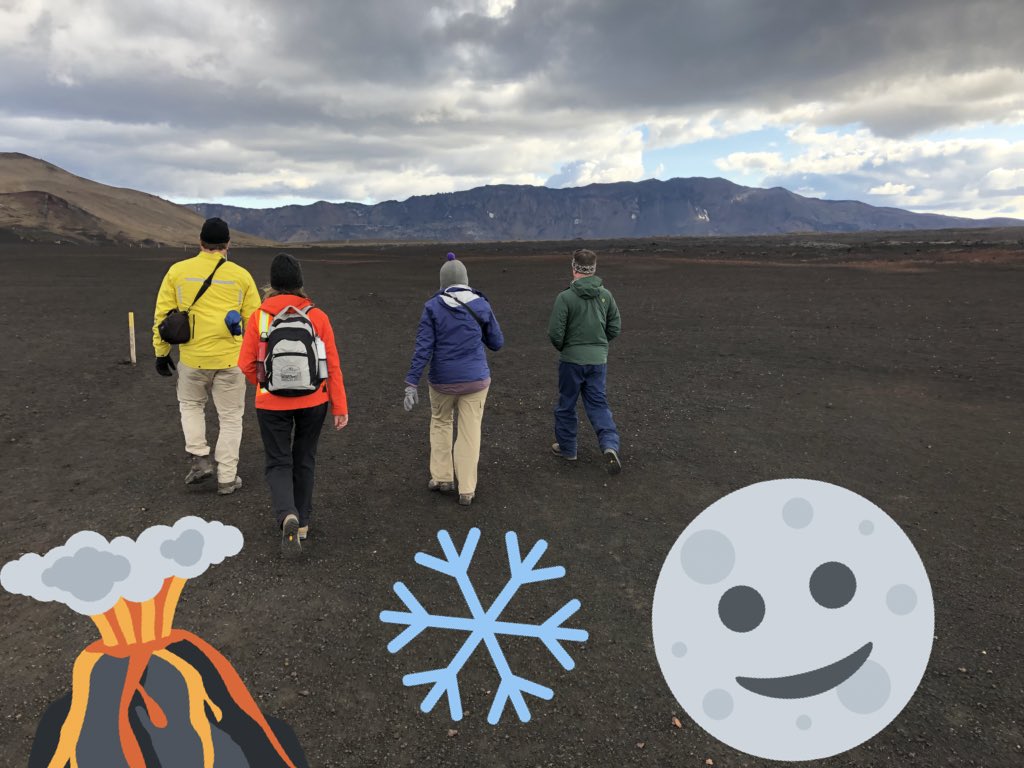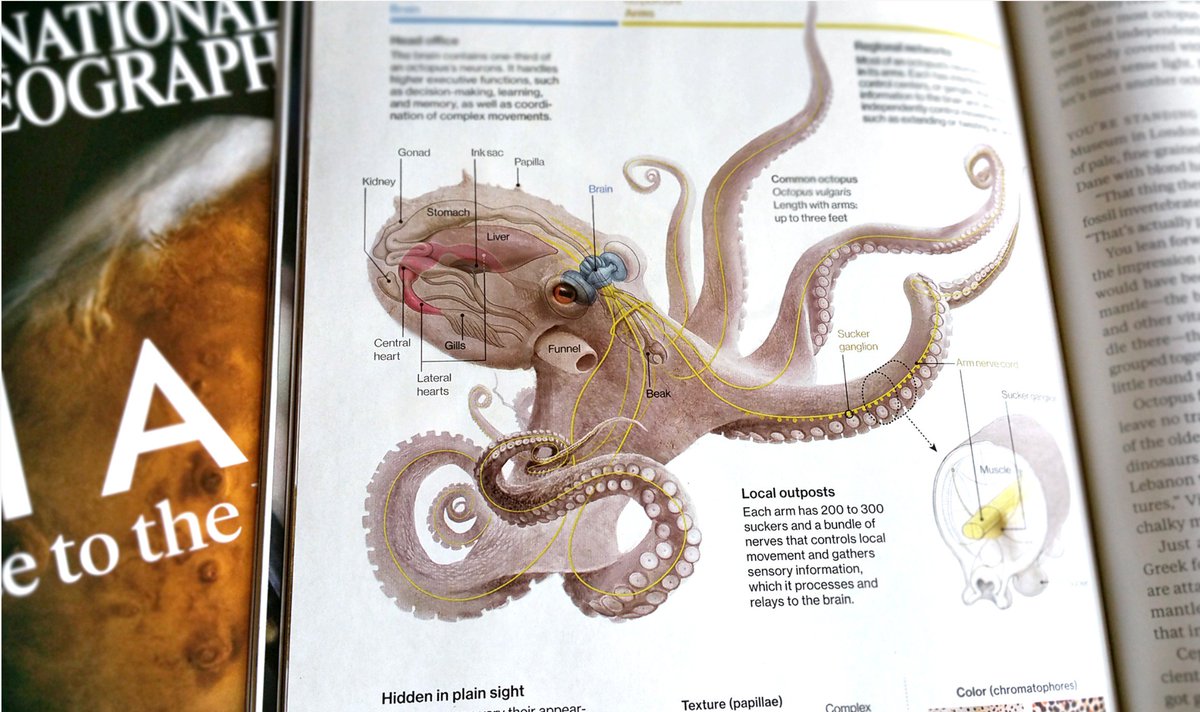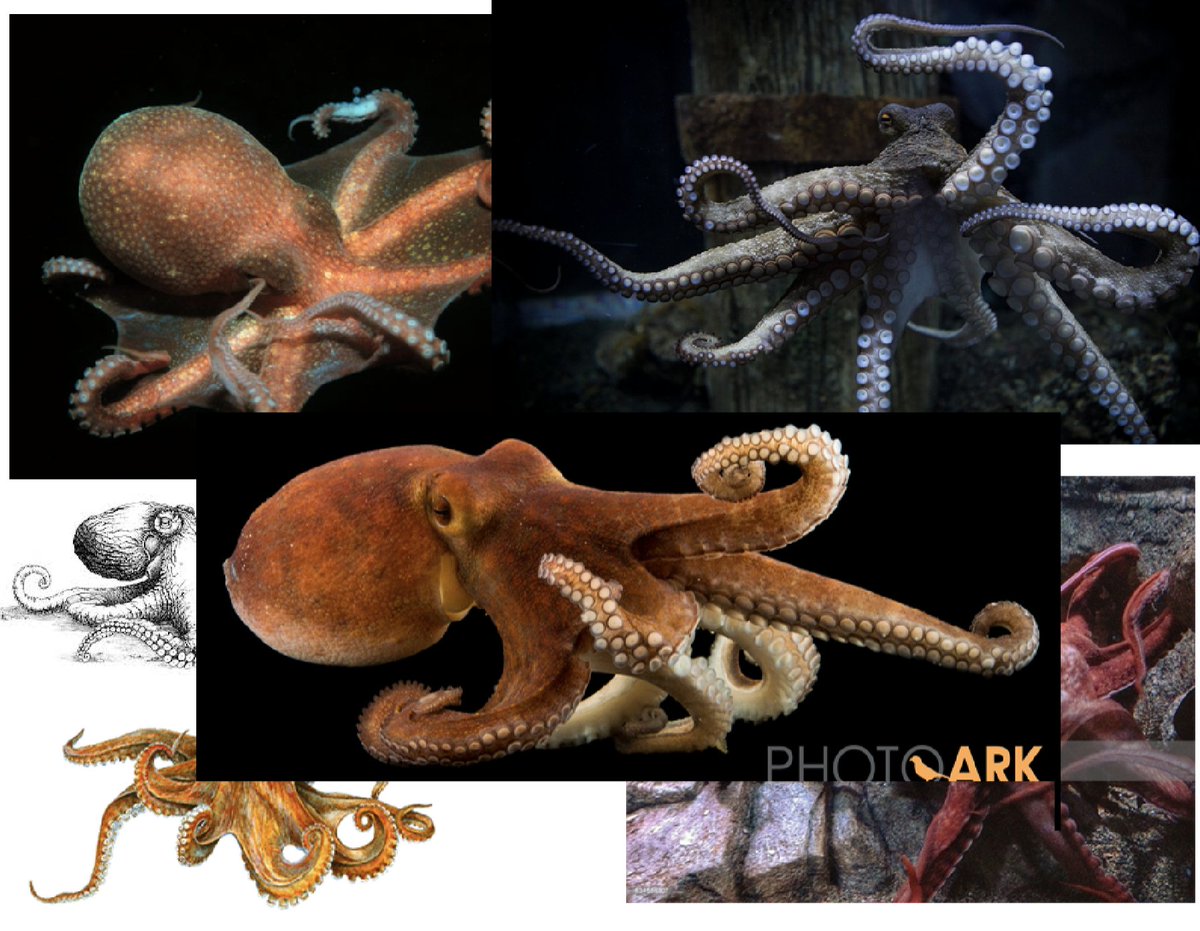Our team is a mix of scientists of many different skill sets and backgrounds. Some of us are great at tweeting, some of us are great at fixing cars, and some of us can cook a curry that makes you cry with happiness after a long windy day in the field.
What binds is together is our dedication to studying the workings of the Solar System by studying out of this world landmarks on Earth. #NASAFieldWork
Some of us are looking at ice and life in preparation for sending robots to Europa. That brought our Team Ice to The glacier covered volcano Kverkfjöll.
Some of us are studying how lava flows and what gasses and materials are found around the flow in preparation of putting humans back on the Moon and beyond. That brought Team Fire to the flood lava flow of Holuhraun.
Geology doesn’t exist in a vacuum and neither does our exploration of the cosmic frontier. Our exploration will always rely on geology, no matter what planet we someday walk on.
The geology at neighboring planets and moons will always tell a story that have wet icy chapters and hot volcanic chapters. Our field excursion is a study of Fire & Ice because the Solar System is awash with fiery and icy bodies that might host life, in the past or the future.
Together, with our team and teams around the country and the world, planetary geology will solve problems we face in exploring the cosmos. This is why #NASAFieldWork on Earth is of paramount importance to the future of Space Exploration.
Thanks for listening to us for a week! We still have a week on the lava and the glacier and we will be studying the sites and our own technology to prepare our instruments for spaceflight. Until we tweet again, happy trails and see you on the flow! #NASAFieldWork #NASAFireAndIce 

• • •
Missing some Tweet in this thread? You can try to
force a refresh













